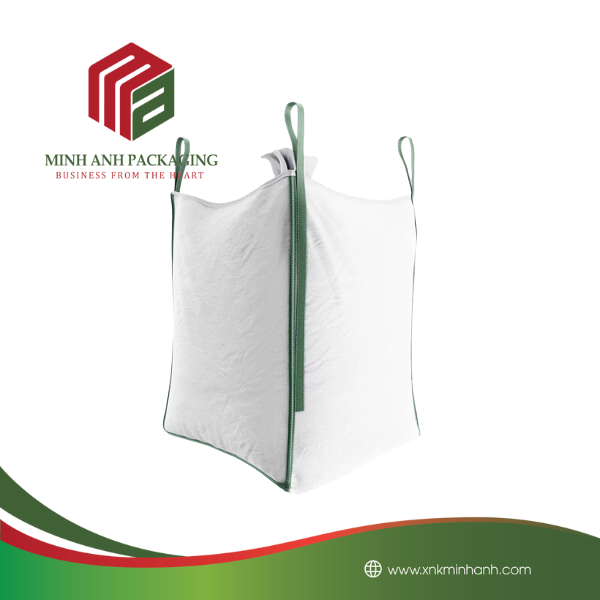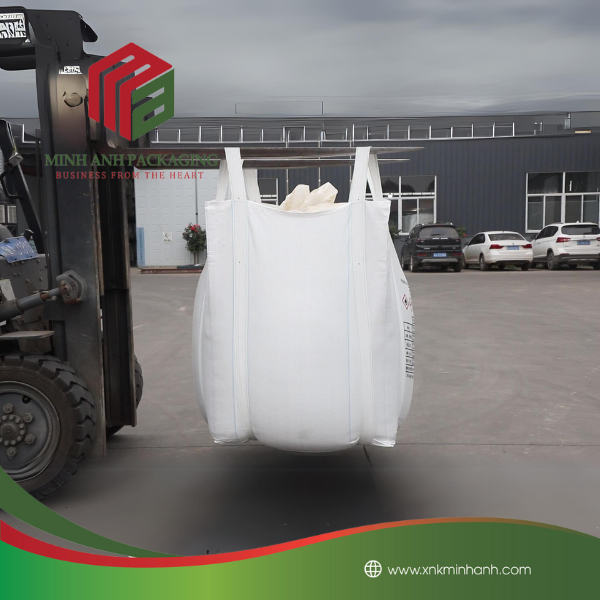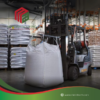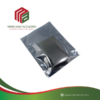Understanding FIBC Bags: A Comprehensive Guide
Flexible Intermediate Bulk Containers (FIBC), commonly known as bulk bags, are a popular packaging solution for transporting and storing a wide variety of materials. These large, flexible containers are used across a range of industries, from agriculture and construction to food and pharmaceuticals. In this comprehensive guide, we will explore the key features, uses, and benefits of FIBC bags, as well as important considerations for their safe and effective use.
Flexible Intermediate Bulk Containers (FIBC), commonly known as bulk bags, are a popular packaging solution for transporting and storing a wide variety of materials. These large, flexible containers are used across a range of industries, from agriculture and construction to food and pharmaceuticals. In this comprehensive guide, we will explore the key features, uses, and benefits of FIBC bags, as well as important considerations for their safe and effective use.

FIBC bags are typically made from woven polypropylene fabric, which provides strength and durability while remaining lightweight and flexible. They are available in various sizes and configurations to suit different applications, with options for different lifting mechanisms, discharge spouts, and liners. Some FIBC bags also feature additional features such as UV protection, electrostatic dissipative properties, and dust-proof seams.
FIBC bags are used for the transportation and storage of a wide range of materials, including:
– Agricultural products such as grains, seeds, and fertilizers
– Construction materials like sand, gravel, and cement
– Chemicals and pharmaceutical products
– Food products such as sugar, flour, and rice
– Waste and recycling materials

The versatility of FIBC bags makes them suitable for both solid and powdered materials, and they can be used for both domestic and international shipping.
There are several key benefits to using FIBC bags for material handling:
1. Cost-effective: FIBC bags offer a cost-effective packaging solution compared to traditional rigid containers or smaller bags.
2. Space-saving: FIBC bags can be stacked and stored efficiently, saving valuable warehouse space.
3. Easy handling: The large size and integrated lifting mechanisms make FIBC bags easy to handle using forklifts or cranes.
4. Customizable: FIBC bags can be customized with various features to suit specific material handling requirements.
5. Reusable: Many FIBC bags are designed for multiple uses, reducing waste and environmental impact.

Considerations for Safe Use
While FIBC bags offer many benefits, it is important to use them safely to prevent accidents or damage to the contents. Some important considerations for safe use include:
– Proper loading and stacking to prevent overloading or instability
– Regular inspection for wear, tear, or damage to the fabric or lifting loops
– Ensuring compatibility with the material being stored or transported (e.g., use of liners for food-grade products)
– Compliance with relevant regulations and standards for safe handling and transportation

FIBC bags are a versatile and cost-effective packaging solution for a wide range of materials. Their flexibility, strength, and customization options make them an ideal choice for industries seeking efficient and reliable material handling solutions. By understanding the key features, uses, benefits, and safety considerations of FIBC bags, businesses can make informed decisions about incorporating them into their supply chain operations.
Hãy là người đầu tiên nhận xét “Understanding FIBC Bags: A Comprehensive Guide” Hủy
Sản phẩm tương tự
Tin Tức Bao Bì
Tin Tức Bao Bì
Tin Tức Bao Bì
Tin Tức Bao Bì














Đánh giá
Chưa có đánh giá nào.